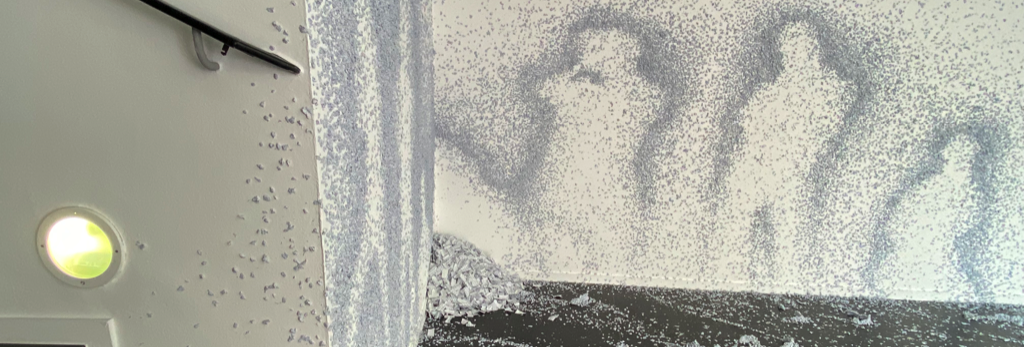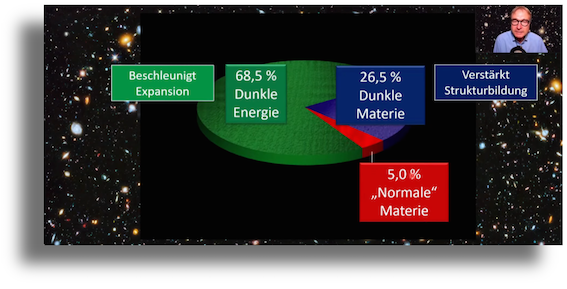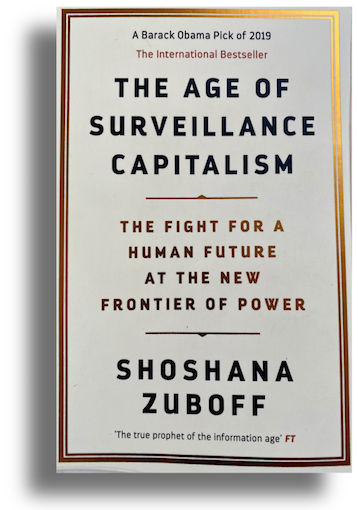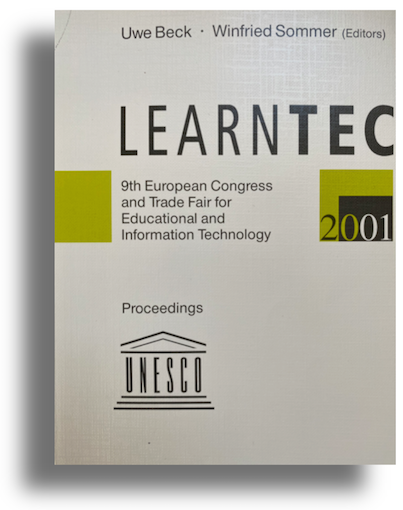UnCredited – Ambivalence of Intellectual Currencies
New Normal beyond Pandemic? – Some personal observations
Leif Edvinsson, Astrid Szogs, Günther M. Szogs
(New Club of Paris)


◀︎ im Heft blättern ▶︎
And This Is Us 2021 – is title of an exhibition in Frankfurter Kunstverein. The complete exhibition space is offered to 9 chosen young student artists to support them actively in starting their career, especially in times of pandemic. Franziska Nori, its director, got together with professors of the famous academies Städelschule and University of Art and Design Offenbach and selected them from 90 submissions. One of the students, Isabell Ratzinger, provoked towards the title of the show. Her art work, kind of „throwing shadows on the hall‘s wall“ created with chewing gum paper, implicitly asks: „If this exhibition is „us“ – What about the rest?“, the not chosen ones, the UnCredited.
We touched this issue of „crediting“ (who is „expert“, „knowledge manager“) in diverse contributions for GfWM. (1) Coming back to it seems adequate for two reasons: 1) paying tribute to responses to our contribution in „Quo Vadis WM – Dossier“ and 2) to visit the spectrum of „Crediting“ – this time in context of „new normal“ collaboration beyond of adaptations taught by the pandemic. Sensing it might redefine the roles in which we are accustomed to work in. It nourishes „crossing border respect“ beyond lip service.
Detecting the backside of Credit – the „UnCredit“ is no myth. GfWM publications-editor Stefan Zillich drew our attention to the film industry and its legendary graphic designer Saul Bass. He revolutionised the way intros and „Credits“ were presented in the movies – as movies in the movies. Saul Bass own role was recognised later as often being un-credited. A survey by Solana/Boneu was even named „Uncredited: Graphic Design & Opening Titels in Movies“. It reveals innumerable anonymous and uncredited designers involved in film making.
Crediting: sometimes confusing
Crediting of course has many facets. You might be credited for false reason. Shoshana Zuboff rightly credited the late Frank Schirrmacher, former chief editor of FAZ, for encouraging her research on „The Age Of Surveillance Capitalism“ („in memory of my courageous friend, Frank Schirrmacher“, Dedications). It is confusing though if somebody is honoured in the name of Schirrmacher symbolising the opposite spirit. US investor Peter Thiel, famous for his disrespect to any form of public governance and his support for Trump receives the Frank-Schirrmacher-Preis.
Or the other way round: discrediting others whilst not playing to the rules yourself. At greeting the Helmholtz Gesellschaft, former Education Minister Annette Schavan mocked the financial industries for crediting staff with easily granting them the title „Director“. Her own doctorate title was apparently achieved too easy as well. She committed plagiarism, thus being forced to resign as minister. This did not stop the government to credit her with an ambassadors role to the Vatican. A question of believing?
Rightly Chancellor Angela Merkel has been credited for inviting prominent pioneers of the IC community to thoughtful round tables. (2) In case of her doctoral degree of honour by Stanford University the credit given was a bit strange. The eulogy praised her pushing for equal rights for LGBT couples and for introducing minimum wage – both political measures she was opposed to (3). Ignorance of the donors.
“Ghosts”: Credited and Uncredited
What causes those controversies over intellectual credit in the first place? What conception of mental and cognitive processes are at its root? When books of candidates for Germany‘s federal election were accused of using plagiarism, Claudia Cornelsen, who wrote more than 60 books as ghostwriter, challenged some central assumption (FR 10.07.2021, pg. 15). She reminds us that in all our writing we rely on sources of intellectual developments owned to the culture we grew up with. If every thought would be traced to its origin we would have never-ending chains of credits to make, leaving no time for own thought. Therefore for many plagiarism was considered „normal“ and not associated with „uncredit“ or even „discredit“. She refers to prominent examples: Hitchcock in films, Thomas Mann in his belletristic, Kandinsky in his paintings – all committed numerous plagiarism „offences“. Patterns of recycling own work or compositions of others were common practice in music – sometimes defended as „homage“. (4)
Society, hopefully, defines criteria for IPR, a delicate distinction between „own“ thought and common knowledge is needed. Nevertheless much of knowledge is commonly generated but privately monetized. In ICM/KM car producer Ford once offered a copy-cat-award and the first Knowledge Manager of the Year, Utz Claassen, famously propagated: sharing knowledge is power, keeping it to yourself is mobbing. That undermines the „normal“ credit system. We need to honour that standing on others shoulders gives a favourable outlook and share with delight. Might Creative Commons be such a systems-platform, beyond restricting IPR?
Back To Normal?
If they do not want to be excluded from further development pupils have to gain credit points in diverse systems. To succeed they improve pretending skills , parallel to extending their knowledge – regarded as cheating. Thus we all learned to manage our own „ignorance“. Sugata Mitra, Leonardo laureate, has made it his life mission (supported by MIT) to challenge this credit system for intellectual achievement.

Bruno Deiss, Director of „Physikalischer Verein“ (A. Einstein and O. Hahn were members): although we refer to just 5% of matter we regard as „normal“, this is rather exotic compared to 95% dark matter and energy – the almost unknown true normal.
For him it‘s clear: „Allow the use of the Internet during examinations … (During Pandemic) teachers who had resisted using the internet for years … became experts at digital video conferencing, bandwidth,…But we all made a mistake. We thought we would create virtual classrooms using the internet… We did not realise we were trying to make an automobile behave like a horse and cart … We need different kinds of learning environments. Some self-organised by learners, some guided by teachers“. No back to normal. (https://sugatam.blogspot.com).
New Normal: Surveillance Capitalism?
We cannot go back in time, therefore going back to normal never is an option. We rather proceed to anyones various forms of „normal“ – from IC perspective an analysis of constant shifts. What is credited to be „normal“ may migrate to perversions – being regarded as „normal“ from opposite points of interest. Shoshana Zuboff in „The Age of Surveillance Capitalism“ tries to analyse those shifts beyond bandwidth and video conferencing but with same assumptions as Sugata. We deal with the unprecedented that is unrecognisable. We interpret through lenses of familiar categories. „We illuminate the familiar thus obscuring the original by turning the unprecedented into an extension of the past“ (p12). The evolution of the Tech industry mirrors exactly this. At its start there was enthusiasm and use of all the new capabilities including ownership of knowledge and sovereignty about the processes.

Who knows? Who decides? Who decides who decides? The mantra of Zuboff. Why not read it as lecture on todays IC – although it is not labelled as such?
With the industries extracting human experience as free raw material for translation in behavioural data and feeding their behavioural future markets with it we the people loose control. We are objects of inescapable raw-material-extraction operation. Google is proud to know us better than we do. „Google benefited when national security apparatus galvanised by the attacks of 9/11 was inclined to nurture, mimic, shelter and appropriate surveillance capitalism’s emerging capabilities for the sake of total knowledge and its promise of certainty.“ (p10). It is this mutual interest and the confrontation with the unprecedented that leads to normalisation of the former abnormal. Knowledge is accumulated from us but not for us. This shift is met by us with ignorance and cynicism out of frustration and helplessness. What we get in return is the cynicism of credit. Pokémon GO: The fun of the game is means for automated protocols designed to influence and modify human behaviour at scale for profit.
Ambiguity of Recognition
Facial Recognition is iconic for fear of surveillance. Take China‘s social credit system that incites automated behaviour not as a market project but for guaranteed outcome for the state. Another „new normal“.
Beware: a similar FR technology many of us use with their smartphones. Photos we took years ago combined with more recent ones are presented on the device as a retrospect-clip to share as credit of friendship.
Recognition is conditional for whatever crediting is involved. It is the intend that matters which is not inherent in the technology but in combination with it constitutes controversial „new normal“. Fantastic initiatives use FR for verification of missing persons. https://www.osintcombine.com/post/facial-recognition-for-verification-missing-persons. Intend is not always easy to define and a question of values. Tone Ringstad with culture-intelligence embeds them in a refined mapping approach which emerged out of research by Brian Hall & Benjamin Tonna. In Skandia 170 values systematized on individual and group level helped in corporate navigation.
Credit is empowering trust – financially and intellectually. Trust goes with risk. The higher the risk the more costly the debt, playing ground for speculation and exponential profit – but also for unexpected fascinating outcomes and rewarding.
Unde Venemus? – ICM and the Societal Dimension
Who is „us“? Whom to credit? Where do we come from? What will be the „new normal“ for IC? We visited a panopticon of credentials and discredits – occasionally similar to the deviances we characterised in „Haltungsfehler“. (5) In the Dossier on IC navigation we listed „old normal“ IC initiatives that intended societal transformation. We observed that the transfer in different spheres showed up applauded lighthouse projects but left essential structural implementations incomplete. More important they felt short to generate a mind shift towards interdependencies in a knowledge based economy.
We cannot „go back to normal“ and „new normal“ may be as diverse as the former normal has been. But we can learn from the past. Looking back gives a feel of dynamics. Which of our endeavours have been either eliminated, stopped, stagnated, hollowed, improved, revitalised, redirected? In case of our back-tracing: To turn IC findings relevant, why did it share the same fate than the climate challenge? Why should it need five decades after programmes like „Community Education for the Young European“, three decades after the International Commission on Education for the Twentyfirst Century’s first meeting (2.-4.03.1993) and two decades (30.01.-02.02.2001) after the cooperation of Europes most prestigious trade fair on educational technologies LearnTec, together with UNESCO took up those ambitions.

Impressive international event initiated by Learntec founders Prof. Sommer and Prof. Beck – both hardly credited for it.
Why should „supreme“ knowledge (in contrast to„subprime“ knowledge in subprime crisis) not have been on the IC agenda? The UNESCO commission insisted on „the triple goals of equity, relevance and excellence“ in their list of guiding principles (6). Why do we not acknowledge that the mentioned Learntec event presented IC challenges from North America, Western and Eastern Europe, Latin America, Caribbean, Asia, Pacific, Africa and Arab States.
In her EU state of the union address (15.09.2021) Commission president Ursula von der Leyen is visiting this past. She turns to her predecessor and the chairman of the mentioned UNESCO report, Jacques Delors, quoting him: „How can we ever build Europe if young people do not see it as a collective project and a vision of their own future?“. She uses it to propose programmes to step up support to those who fall into the gaps – those not in any kind of employment, education or training. „For them, we will put in place a new programme, ALMA. ALMA will help these young Europeans to find temporary work experience in another Member State.“ – similar to those programs decades ago we referred to.
Hedging Ignorance – The not Knowing
The focus of above core navigating questions reflecting the discrepancies in the Quo Vadis dossier of course is reflecting just one dimension of dynamics – societal transformation – within the diversity of IC challenges, journeys and solutions in the „old normal“. Propagating it is ignorant (partly necessarily) of many other roots. To construct this kind of framing narrative Ursula Schneider refers to as „schützende Ignoranz“ – hedging ignorance.
Peter Pawlowsky is crediting us with a fulminant response. He challenges our recap of the journey of ICM/KM with another important source: ICM initially had its roots in business economics. He gives guidance through all the stages within that sphere of KM, to which progress he himself contributed enormously. Within the more constraint framework of business management, goals of societal transformation were not on the agenda and therefore ICM could not fail on them (“Incommensurability“). They emerged more recently when effects of neoliberalism economy revealed the cloven hoof („Pferdefuss“) of Adam Smith invisible hand regulating the market. (7) So only now, according to Peter, the time may be ripe to use the UNESCO framework for societal learning and the 17 UN SDGs as compass whilst facing a journey in uncertainties.
Transforming Ignorance and Knowledge to Societal Innovation
The issue to be considered is about the self-conception of IC. Of interest is the „New Normal“ context. The business economy viewpoint might focus on KM as an academic discipline testified by corporate practice. In their hedging ignorance they did not label societal learning as KM, but might do so now. For our framing the goals of course were present all along and the question is: why were they diminished?

Unlock Wissensbilanz! In Schloss Kranichstein met the international advisory board for WB Made in Germany. Why not make it a common mindset for societal IC? (photo: G.M. Szogs)
Aware of this ambivalence in crediting AND un-crediting, sometimes discrediting both, knowledge and ignorance, depending on goals and facets, we might find ways of cooperating in more depth with so many fruitful initiatives around who do not label themselves „IC“ or „KM“ but often practice it with even more vigor. This might intensify impact to societal mindshift. Wissensbilanz should be applied in everyday thinking in all societal fields – with its interplay of human, structural and relational potential classified each by quality, quantity and systemic coherence. Future Centers like MindLab in Copenhagen or LEV in Utrecht have combined it with learning labs even for cross-discipline participants of governments, business and civil society. Some of their pioneers are engaged in EU`s New Bauhaus initiative. In his book „Corporate Longitude – Navigating the Knowledge Economy“ Leif noted on „Intellectual Futures“: „The entire point of intellectual capital is that it is universal … fundamental to all companies, communities and.. societies. It is not a management technique like reengineering which you can choose to apply or not.“ (p.26) A new key role in our networked society is ‘interpreneurs’ as transformative bridge builders.
The extraordinary in this quite often is the ordinary. Jürgen Klopp when being introduced as new Liverpool coach surprised everybody characterising himself as being „the normal one“. We might find our new normal in transforming our crediting and uncrediting, our knowledge and ignorance to a common course for societal renewal. This is also the core agenda issue for New Club of Paris! ![]()
Footnotes
(1) Maybe Knowing, Ignorance, Haltungsfehler, IC Navigation
(2) S.Bergheim: Zukünfte, P.149, challenge: participants of relevant ministries were missing due to governance controversies, p155
(3) NYT notes this mistake of not crediting social democrats (23.09.2021)
(4) See our article on „Haltungsfehler“, GfWM Themen 14, reflecting judgements depending on value-framing
(5) See GfWM Themen 14 https://www.gfwm.de/gfwm-themen-14-fehler/
(6) Jacques Delores, Report on Education for the 21. Century, p. 254
(7) Karl Marx demystified this euphemism „cloven hoof“ in the 19.century. For this brilliance he was often discredited . This reminds us of Ursula Schneider`s remark: „Wissensmanagement scheint sich zu Erkenntnis so ähnlich zu verhalten wie Stalinismus zu marxistischen Idealen oder die Inquisition zum Neuen Testament“. She wants to overcome the dualism of idea and deed confronting herself with the blind spots and the dark side of knowledge (Das Management der Ignoranz p 5/6).

photo left: Günther and Leif in conversation with the often uncredited late Peter Kalvelage (center); photo right: Astrid Szogs. – See Peter´s last clip including central NCP messages on www.leonardo-award.eu. There you also find Jacques Delors Leonardo acceptance speech and the eulogy by Hans Dietrich Genscher.
Leif Edvinsson, Astrid Szogs and Günther M. Szogs team up again to relate reactions to their paper on IC navigation to an evolution of diverse new societal „normal“. They underscore their call on IC as enabler for enablers, guided by the SDG goals. They insist on more fundamental cooperation with intentiously diverse organisations like the GfWM, Positive Carthography, the Hochschulnetzwerk Bildung durch Verantwortung, the Arbeitsgemeinschaft Wirtschaft und Verwaltung (AWV), innovative museums and grassroot platforms. The three have complementing backgrounds with Leif as being one of the leading IC Pioneers, both in business and in academia, Astrid being engaged as innovation manager of a mobility cluster, building regional innovation ecosystems and Günther relying on his experience as bridge builder in business, governmental and non-for-profit networks.

◀︎ im Heft blättern ▶︎
About this contribution Text: Leif Edvinsson, Astrid Szogs, Günther M. Szogs · Editors: Stefan Zillich, Andreas Matern · Images: G.M. Szogs; Screenshot: from the video „Das Nachleuchten des Urknalls und die Hubble-Expansion“ (on YouTube) · Editorial Design: Stefan Zillich, re:Quest Berlin · published in: Kuratiertes Dossier „Wissensmanagement – New Normal“, online magazine start page – order a copy of the printed edition · About the edition „Das Kuratierte Dossier“ · © authors / GfWM e. V. 2021 · contact to the editors
